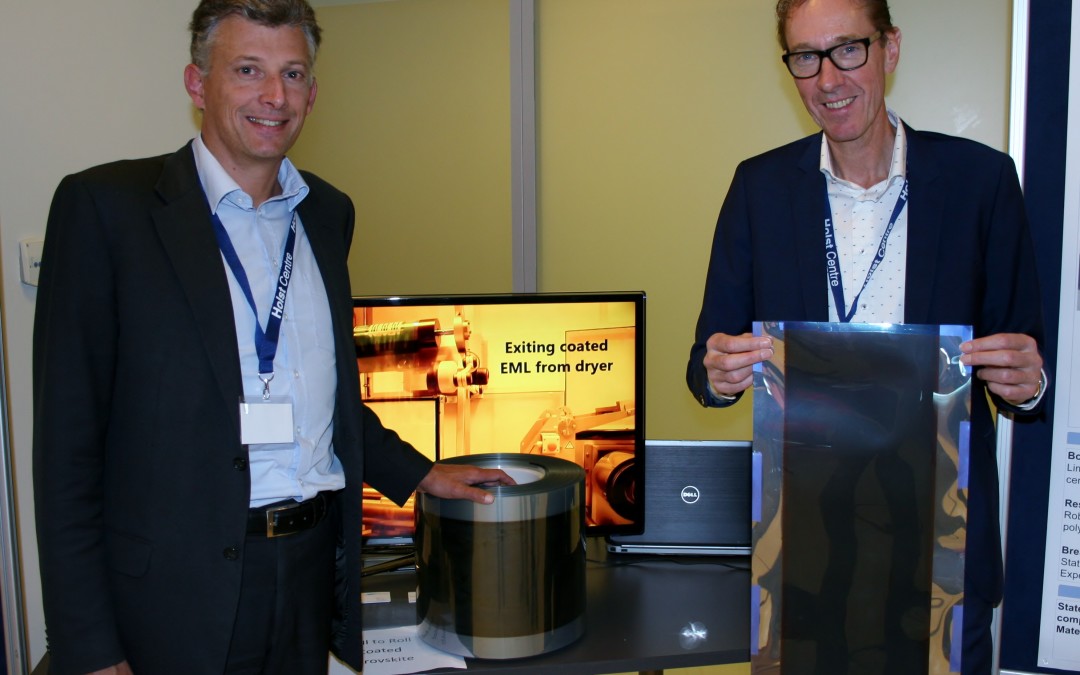At the silicon PV/nPV conference in Lausanne in mid-March, researchers from Solliance introduced its latest achievement, a perovskite solar cell with 93% near infrared transparency. At the same event, ECN demonstrated that stacking this cell on top of a silicon cell with its metal wrap through heterojunction technology, could achieve a cell efficiency of 26.3% – more than 3% above the efficiency of the silicon cell alone.
“By optimizing the ITO (indium tin oxide) composition and deposition conditions as well as careful design of the anti-reflection coating (ARC), an extremely high transparency is achieved for the top electrode, despite the low temperature process window,” says Solliance researcher Dong Zhang.
By itself, the perovskite cell achieved 16.4% efficiency. Solliance now plans to work on scaling up the process and creating demonstration modules. “Scaling up from a laboratory scale to an industrial process is one major barrier for a successful implementation of a new promising development,” says Sjoerd Venstra, Program Manager for perovskite solar cells at Solliance. “Now that the device was proven with spin coated layers, we use pilot scale equipment provided by our industrial partners to scale it to a viable industrial production process.”
The cell created by Solliance was combined with a metal wrap through silicon heterojunction cell by ECN. This cell added 9.9% to the tandem efficiency. “This result shows how feasible it is to achieve significant efficiency gain even over high-end crystalline silicon technology and based on industrial process technology,” says Gianluca Coletti, Director of ECN’s Industry Research Program. “At ECN we are working to further optimize the bottom cells and the module integration to obtain higher conversion efficiency, reliability, and lower production cost to match the market requirements for tandem applications.”
This content is protected by copyright and may not be reused. If you want to cooperate with us and would like to reuse some of our content, please contact: editors@pv-magazine.com.









By submitting this form you agree to pv magazine using your data for the purposes of publishing your comment.
Your personal data will only be disclosed or otherwise transmitted to third parties for the purposes of spam filtering or if this is necessary for technical maintenance of the website. Any other transfer to third parties will not take place unless this is justified on the basis of applicable data protection regulations or if pv magazine is legally obliged to do so.
You may revoke this consent at any time with effect for the future, in which case your personal data will be deleted immediately. Otherwise, your data will be deleted if pv magazine has processed your request or the purpose of data storage is fulfilled.
Further information on data privacy can be found in our Data Protection Policy.